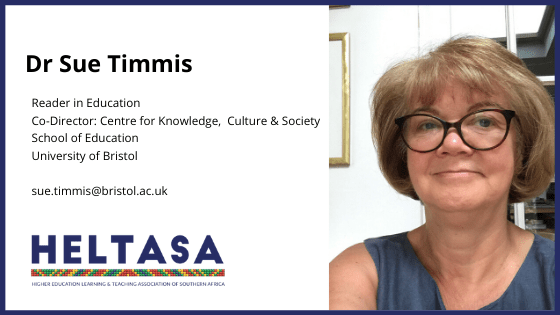 blog by Mark Neild, EdD student, SOE, University of Bristol
blog by Mark Neild, EdD student, SOE, University of Bristol
This article is a personal reflection on the best and worst of blended learning from the perspective of a senior lecturer in innovation and entrepreneurship teaching a unit with 35 and another with 160 students, who is also a student at the School of Education.
The positives of online learning
In some ways the forced move to “blended learning” has enabled us to accelerate a move towards the “flipped classroom” in which students consume prepared material individually and come together for “meaning making” through shared dialogue. One advantage of individual consumption is that students can learn at their own pace, stop and rewind in a way impossible with a real time “lecture”. This has benefits for interactivity, particularly for students whose first language is not English. Such “asynchronous” interaction allows those who (for whatever reason) process new information more slowly to still engage in online discussions rather than missing out because by the time they are ready to contribute, the discussion has moved on. We have also been able to invite visiting experts for 20-minute guest Q&A sessions without the need for hours of travelling and recorded some great guest interviews. The weekly outline for our unit of 160 students looked like this. (more…)



 Blog post by Claire Lee and Lucy Wenham, School of Education, University of Bristol
Blog post by Claire Lee and Lucy Wenham, School of Education, University of Bristol

